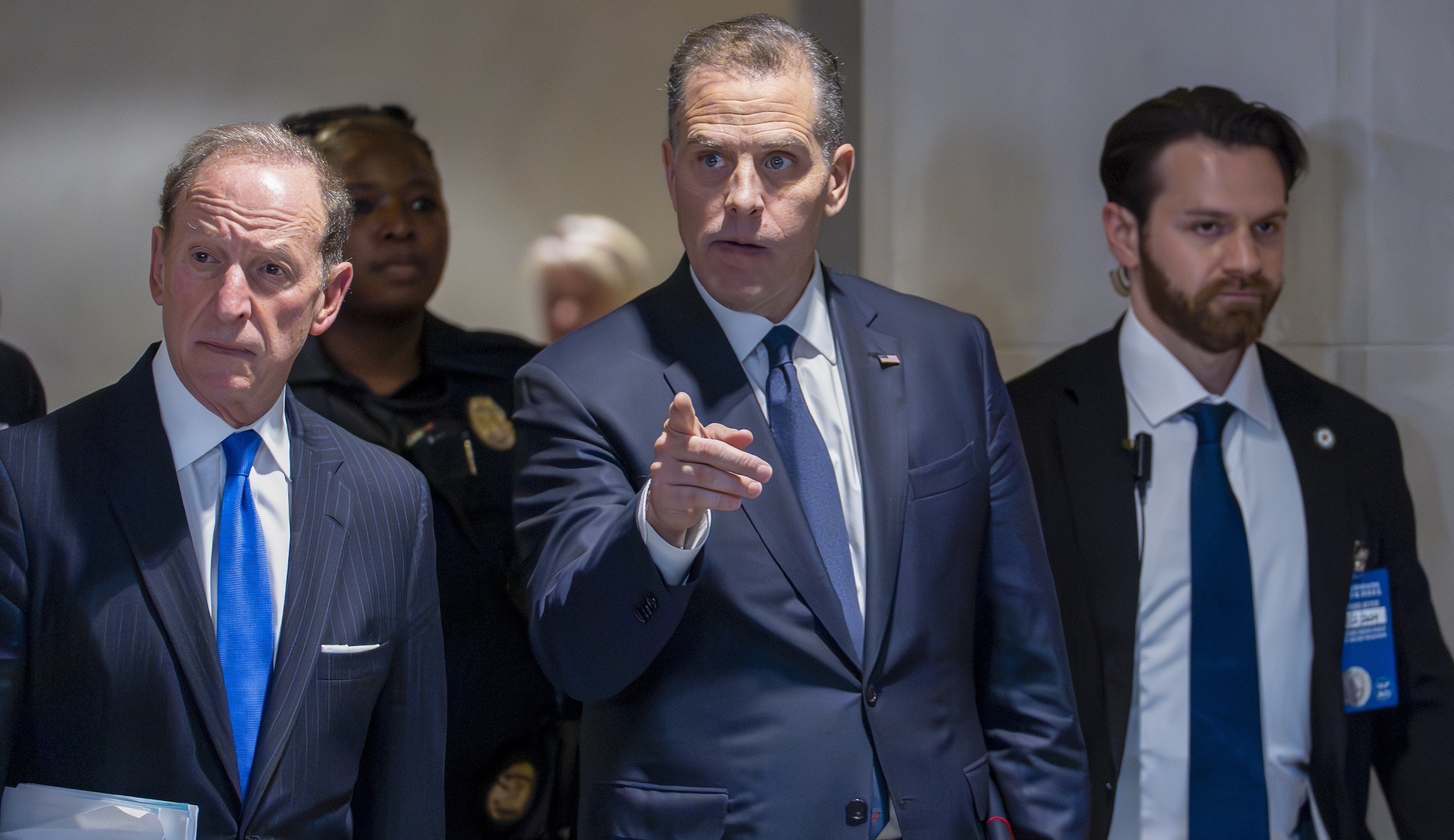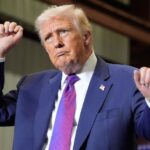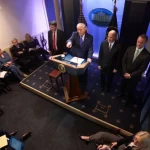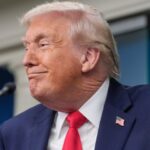

Hunter Biden’s hourslong testimony to lawmakers this week came after House Republicans sifted through thousands of documents and dozens of witness interviews, some of which cast doubt on the truthfulness of the first son’s deposition.
A 229-page transcript of the deposition revealed Hunter Biden’s defiance in the face of questions about the involvement of his father, President Joe Biden, in his foreign business dealings, as well as the significant details the first son said he no longer remembers about his financial arrangements at the time.
His testimony marks what House Republicans say is a shift in their impeachment inquiry into a “new phase,” one that could involve calling Hunter Biden back to Capitol Hill for a public hearing.
Here are some takeaways from the transcript.
RUSSIA RESET
Hunter Biden claimed his decision to accept a board position with the Ukrainian energy company Burisma was driven by a desire to fight Russian aggression, even though he worked with other business ventures that were friendly to Russia.
“Whatever you think about Burisma, it was a bulwark against Russian aggression in a moment in time when the single purpose of Vladimir Putin, in his taking Crimea and his incursions into Donetsk and to Donbas, was to take over the natural-gas fields, was to take over their energy supply,” the first son testified.
But Hunter Biden’s anti-Russia sentiment did not stop him from hosting a Russian oligarch, Yelena Baturina, at a dinner with his father in 2014. Baturina’s husband was the former mayor of Moscow. One of Hunter Biden’s former business associates, Devon Archer, told House Republicans last year that he believed the former Moscow mayor was also at the dinner with then-Vice President Joe Biden.
Shortly after Joe Biden met Baturina at that dinner, the Russian oligarch wired $3.5 million to a company associated with Archer, who later transferred more than half of that sum into a different account that was used to pay Hunter Biden for various foreign deals the two worked on together, according to the House Oversight Committee. Archer had testified that the money from Baturina landed in the original account by mistake.
CEFC, a Chinese energy company that paid Hunter Biden millions of dollars, was also a pro-Russia entity. Before his disappearance inside China, CEFC Chairman Ye Jianming moved to purchase a significant stake in Russian state-owned energy company Rosneft.
CEFC, which had close ties to the Chinese government, reportedly pursued the deal with Rosneft just days after Putin and Chinese President Xi Jinping pledged to deepen energy cooperation between Russia and China.
DISAPPEARING DIAMOND
Hunter Biden also appeared to contradict two of his past statements when he was asked about a large diamond given to him in February 2017 by Ye, the chairman of CEFC.
“I gave it to my uncle,” Hunter Biden said this week of what he did with the diamond.
But in 2019, Hunter Biden told the New Yorker he had given the stone to his business partners.
“Hunter said that he gave the diamond to his associates, and doesn’t know what they did with it,” the New Yorker reporter wrote at the time. Hunter Biden was also quoted in that article as acknowledging that he “knew it wasn’t a good idea to take it” and that he felt “weird” about the gift.
However, speaking with lawmakers this week during the deposition, Hunter Biden appeared to know what was done with the diamond after he gave it away.
“I believe that he said he got it checked out, and it wasn’t really worth much,” Hunter Biden testified.
During divorce proceedings with his ex-wife in 2017, Hunter Biden seemingly provided yet another version of the story about what became of the diamond. After his ex-wife claimed in court filings that the diamond was worth $80,000 and requested that the stone be placed in a safety deposit box while they negotiated their divorce, Hunter Biden’s lawyers claimed Hunter Biden had returned the diamond to Ye in 2017.
CEFC TIMELINE
Hunter Biden also said he did not recall doing any work with CEFC before the spring of 2017, after his father had left the vice presidency. Emails and testimony from another former business associate, Tony Bobulinski, suggest that Hunter Biden’s business relationship with CEFC started a year earlier, while his father was still in office.
“I do not personally recall presenting any particular projects” to CEFC prior to the spring of 2017, Hunter Biden said in his deposition.
In a voluntary interview with the FBI in 2020, Bobulinski said Hunter Biden and his uncle, James Biden, had simply declined to receive payment from CEFC for their services until after Joe Biden left office in order to avoid scandal.
“HUNTER BIDEN and JAMES BIDEN did not receive any compensation because JOSEPH BIDEN was still VPOTUS during this time period. There was a concern it would be improper for payments to be made to HUNTER BIDEN and JAMES BIDEN by CEFC due to its close affiliation with the Chinese government,” Bobulinski told FBI agents, according to a memo summarizing his interview.
“HUNTER BIDEN and JAMES BIDEN both wanted to be compensated for the assistance they had provided to CEFC’s ventures; in particular, they believed CEFC owed them money for the benefits that accrued to CEFC through its use of the BIDEN family name to advance their business dealings,” the memo said.
But Hunter Biden repeatedly denied that he did any work with CEFC before early 2017.
“My business with CEFC, which was completely legitimate and completely, 100% in line with my experience and my abilities, was done when my father wasn’t even in office. He was out of office,” the first son said.
Emails show Hunter Biden and his associates were discussing doing business with CEFC at least a year earlier than what the first son said during his deposition.
TEXT MESS
“I can also tell you this: My father was not sitting next to me,” Hunter Biden said of a now-infamous text message in which he demanded payment from a Chinese businessman while warning that Joe Biden was nearby. “My father had no awareness. My father had no awareness of the business that I was doing.”
The text in question involved an effort from Hunter Biden to get payment from CEFC that he believed he was owed in July 2017. A pair of IRS agents who spent years investigating the first son revealed the message when they provided whistleblower testimony to Congress last year.
Hunter Biden claimed during the deposition this week that he was not next to his father when he sent the message and that he fired off the text to the wrong person, causing him embarrassment.
However, circumstantial evidence suggests Hunter Biden was with his father on the day he sent those messages. Hunter Biden was photographed at his father’s home in Delaware on July 30, 2017, the day he sent the threat to the CEFC executive, the Washington Free Beacon reported.
And Hunter Biden received a $100,000 wire from CEFC within days of sending the message, raising questions about whether he indeed sent it to the wrong person.
I DON’T RECALL
Hunter Biden said he did not remember key meetings and deal structures that had piqued the interest of GOP investigators.
For example, Hunter Biden said he did not remember introducing his father to Ye, the CEFC chairman, despite testimony from a former associate, Rob Walker, who said Joe Biden had met with his son and Ye at a private room at the Four Seasons hotel in Washington, D.C., in 2017.
Hunter Biden said he did not remember entering into the “handshake” deal Archer told lawmakers the two had struck to split ownership of Rosemont Seneca Bohai, one of many companies that helped facilitate Hunter Biden’s foreign income.
The first son said he did not recall sending or receiving various texts and emails and that he did not remember which foreign business associates attended which dinners with his father.
Throughout several of the years Hunter Biden was active in his foreign consulting business, he struggled with addiction, so forgetting some details from that time frame is certainly possible.
WHAT NEXT?
The GOP impeachment inquiry has lost steam due to a pair of events in the past month: a special counsel report revealing fresh details about Joe Biden’s declining cognitive abilities and the arrest of an ex-FBI informant accused of lying to the FBI.
Republicans’ concerns about the president’s age have seemingly eclipsed their concerns about business deals that are, at this point, more than 5 years old.
Polling shows voters are far more concerned with Joe Biden’s fitness for office than with his family business deals. And GOP lawmakers may find it difficult to argue that Joe Biden was the secret leader of a foreign influence peddling scheme at the same time that they attempt to paint him as too feeble and clueless for the presidency.
The indictment of Alexander Smirnov, once a trusted FBI informant, on charges of allegedly lying to FBI agents about Hunter Biden’s work in Ukraine has given Democrats ample ammunition to fire at the impeachment inquiry. Republicans had hyped Smirnov’s claim, when it became public last summer, that Ukrainian energy company Burisma had bribed Joe Biden and his son to ease problems in Ukraine.
Now, Democrats are arguing the unraveling of Smirnov’s claim has undermined the entire inquiry.
CLICK HERE TO READ MORE FROM THE WASHINGTON EXAMINER
Republicans do not appear to have the votes to impeach Joe Biden, and they have already interviewed most of the marquee witnesses on their list.
Still, the GOP lawmakers involved say they intend to press ahead with additional investigative work and, eventually, with writing an impeachment report, although the appetite for pursuing the foreign business scandals of Hunter Biden may fade as the election approaches.






